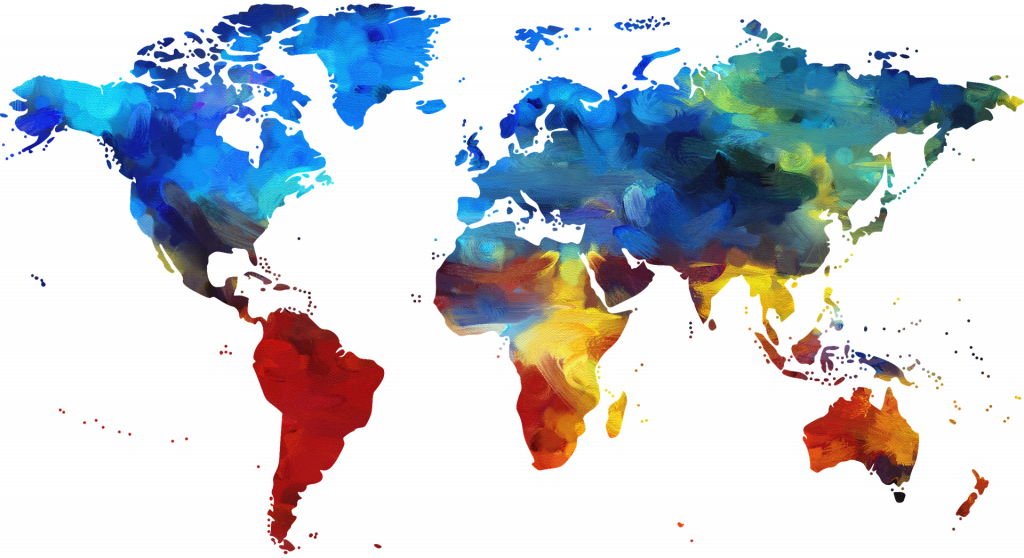Last week, we brought you part 1 of an interview with Dr Analía Gerbaudo, who was Global South Visiting Fellow at Oxford last term. Today, our undergraduates Stephanie and Sarah bring you the concluding part of this interview, which covers Dr Gerbaudo’s experience founding a literary magazine and an insight into her own writing.
SL & SW: En 2014, usted fundó la revista literaria El Taco en la Brea, además de ser la directora de la editorial Vera cartonera. ¿Qué la inspiró a fundar una revista literaria? ¿Qué desafíos enfrentó al fundar la revista y qué desafíos sigue enfrentando al ser la directora de una editorial?
AG: Mis fantasías de intervención son pretenciosas. Porque sé que es imposible, me encantaría que nuestra revista tuviera el impacto que tuvo en el campo intelectual argentino Punto de vista. Sé que es absolutamente imposible que una revista universitaria tenga el alcance y la llegada que esa revista cultural tuvo en Argentina, en Latinoamérica y más allá, entre 1978 y 2008. Siendo un poco más realista, y en un orden más “nano”, me interesa que los resultados de investigación realizados con fondos públicos puedan ponerse a disposición en una revista on line, de calidad y con acceso abierto para todo aquel que necesite utilizarlo.
La editorial cartonera también se mueve en una tensión entre lo pensable y lo posible, tanto en términos de producción como de circulación y consumo: se intenta contribuir a generar nuevos lectores porque se apuesta a la lectura como una de las vías privilegiadas en la construcción de agencia política. Se intenta, entonces, acercar un bien simbólico de calidad a bajo precio: el libro es un objeto suntuoso incluso para un amplio sector de la clase media baja argentina y de nuestro estudiantado universitario, aun cuando la carrera elegida haya sido letras (recordemos que las carreras de grado universitario en Argentina son gratuitas: a ellas acceden estudiantes de ingresos económicos diversos). Y como en el caso de la revista, nuestras fantasías de intervención también tienen un ángulo desmesurado y delirante: estamos trabajando en una página Web para colgar todos nuestros libros cartoneros en acceso abierto. Intentamos con esto generar una circulación que vaya más allá de Argentina. Intentamos generar una circulación que contribuya a incidir en la configuración de la Word literature.
Nuestros desafíos son los que atraviesa cualquier espacio institucionalizado en un país inestable como Argentina, con políticas públicas variables. Es decir, nuestros desafíos son poder sostener la calidad a pesar de la falta de financiamiento. Parece una tontería pero tener dinero para invertir en un buen diseño o para algo básico como comprar el papel (en el caso de la cartonera) no son cosas aseguradas. Como Sapiro muestra en sus análisis de la producción literaria bajo la ocupación alemana, el acceso al papel era un problema. En Argentina, el acceso al papel fue un problema no sólo bajo los regímenes dictatoriales. Este es un ejemplo, entre otros. Podríamos analizar con detalle qué relación hay entre, otra vez, activismo y trabajo intelectual en países periféricos como Argentina, Chile, Brasil, Bolivia, constantemente jaqueados por diferentes formas de violencia estatal dados los vaivenes entre ciclos expansionistas de derechos y posdictaduras.

SL & SW: In 2014, you founded the literary magazine El Taco en la Brea, in addition to being the director of the publishing house Vera cartonera. What inspired you to found a literary magazine? What challenges did you face in founding the magazine, and what do you continue to face in being the director of a publishing house?
AG: My “fantasias de intervención” are ambitious.Although I know it is impossible, I would love for our magazine to have the same impact as the cultural magazine Punto de vista did on the Argentinian intellectual scene. But I know that it is absolutely impossible for a university magazine to have the same reach and reception that Punto de vista had in Argentina, in Latin America and beyond, between 1978 and 2008. When I’m being a bit more realistic, and on a smaller, more “nano” scale, I want the research results carried out with public funds to be made available in a quality, online magazine, with open access for anyone who needs to use it.
The cartonera publishing house also shifts in a tension between what is conceived and what is possible, as much in terms of production as circulation and consumption. It aims to generate new readers because it is committed to the discipline of reading as one of the privileged methods involved in the construction of political agency. We therefore also have the intention of symbolically reconciling high quality with a low price. Books are a luxury even for a wide section of the lower-middle class in Argentina, as well as for our university students, even when the degree chosen is literature (getting a university degree in Argentina is free, accessible to students from diverse economic backgrounds). And, as in the case of the magazine, our “fantasias de intervención”also have a boundless, delirious element: we are working on a web page to upload all of our cartonero editions with open access. With this, we aim to circulate our work beyond Argentina, and generate a circulation that contributes to underscoring the shape of “world literature”.
Our challenges are those that cross into any institutionalized space in an unstable country like Argentina, with changing public politics. That is, our challenges are to be able to maintain quality despite the lack of funding. It seems silly but having money to invest in a good design or for something basic like buying paper (in the case of the cartonera books) is not assured. As Sapiro demonstrates in her analysis of literary production under Nazi occupation, access to paper was a problem. In Argentina, access to paper was not only a problem under dictatorial regimes. This is one example among others. We could, once again, analyse in detail what the relationship is between activism and intellectual labour in peripheral countries such as Argentina, Chile, Brazil and Bolivia – countries constantly rocked by different forms of state violence, given the see-sawing between the expansionist cycles of rights and the post-dictatorial regimes.
SL & SW: Habrá estudiantes que cuando lean esta entrevista tendrán interés en estudiar sus obras. ¿Qué consejos les daría a ellos y a las personas cuyo idioma nativo no es el español si le preguntasen: “por dónde empezar”?
AG: La línea de trabajo que desarrollo se abre con un libro que publiqué en 2016: en Políticas de exhumación. Las clases de los críticos en la universidad argentina de la posdictadura (1984-1986) ensayo una articulación metodológica entre las teorías de Jacques Derrida y de Pierre Bourdieu para analizar cómo se enseñó la teoría literaria y la literatura argentina en mi país durante los primeros años de la restitución “democrática”. En ese libro se muestran modos de leer y de enseñar literatura y teoría literaria desarrolladas entre 1984 y 1986 por algunos de los mejores críticos de argentina: Beatriz Sarlo, Josefina Ludmer, David Viñas, Enrique Pezzoni y Jorge Panesi. Enviar a leer ese libro es enviar a leerlos a ellos. Esa es otra de mis fantasías de nano-intervención más poderosas.
SL & SW: There are students reading this interview who will be interested in studying your works. What advice would you give them, and other people whose native language isn’t Spanish, if they ask where to begin?
AG: The line of work I have developed opens with a book that I published in 2016: in Políticas de exhumación. In Las clases de los críticos en la universidad de argentina de la posdictadura (1984-1986) ) I try out an interactive methodology with the theories of Jacques Derrida and Pierre Bourdieu to analyse how literary theory and Argentinian literature was taught in my country during the first years of the “democratic” restitution. This book shows the ways of reading and teaching literature and literary theory developed between 1984 and 1986 by some of Argentina’s best critics: Beatriz Sarlo, Josefina Ludmer, David Viñas, Enrique Pezzoni and Jorge Panesi. In recommending this book to others, I’m urging them to read these critics too. This is another of my more powerful “fantasias de nano-intervención”.
Concluding thoughts from Stephanie and Sarah
Throughout the course of this interview, Gerbaudo gives us an insight into her time at Oxford, the instrumental role of Oxford academics in furthering discussions and a taste of her own approaches to literature and literary theory, especially under censorship and dictatorship. She highlights the influence of Jacques Derrida on her own work, focussing on exhumation policies in her study of historical literary practices. Words are undeniably powerful as she demonstrates with her current role as director of Vera Cartonera editorial. Through her ambitions for the future of the literary magazine, Gerbaudo provokes us into questioning the role of activism, translation and publication in the global dissemination of literature.
We would like to thank Professor Gerbaudo for taking time to talk to us and we hope this taster of her work will inspire others to explore her work further.

